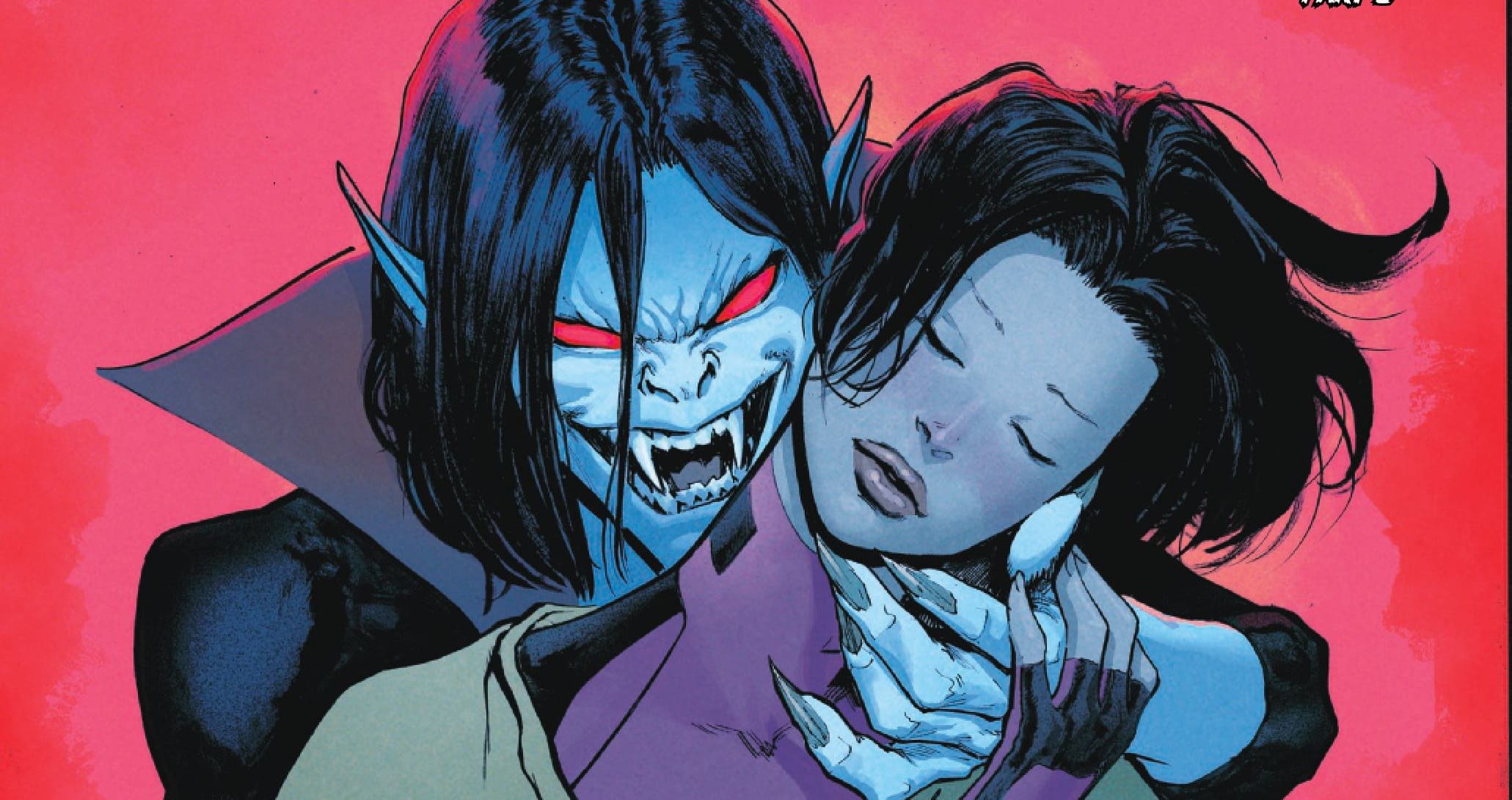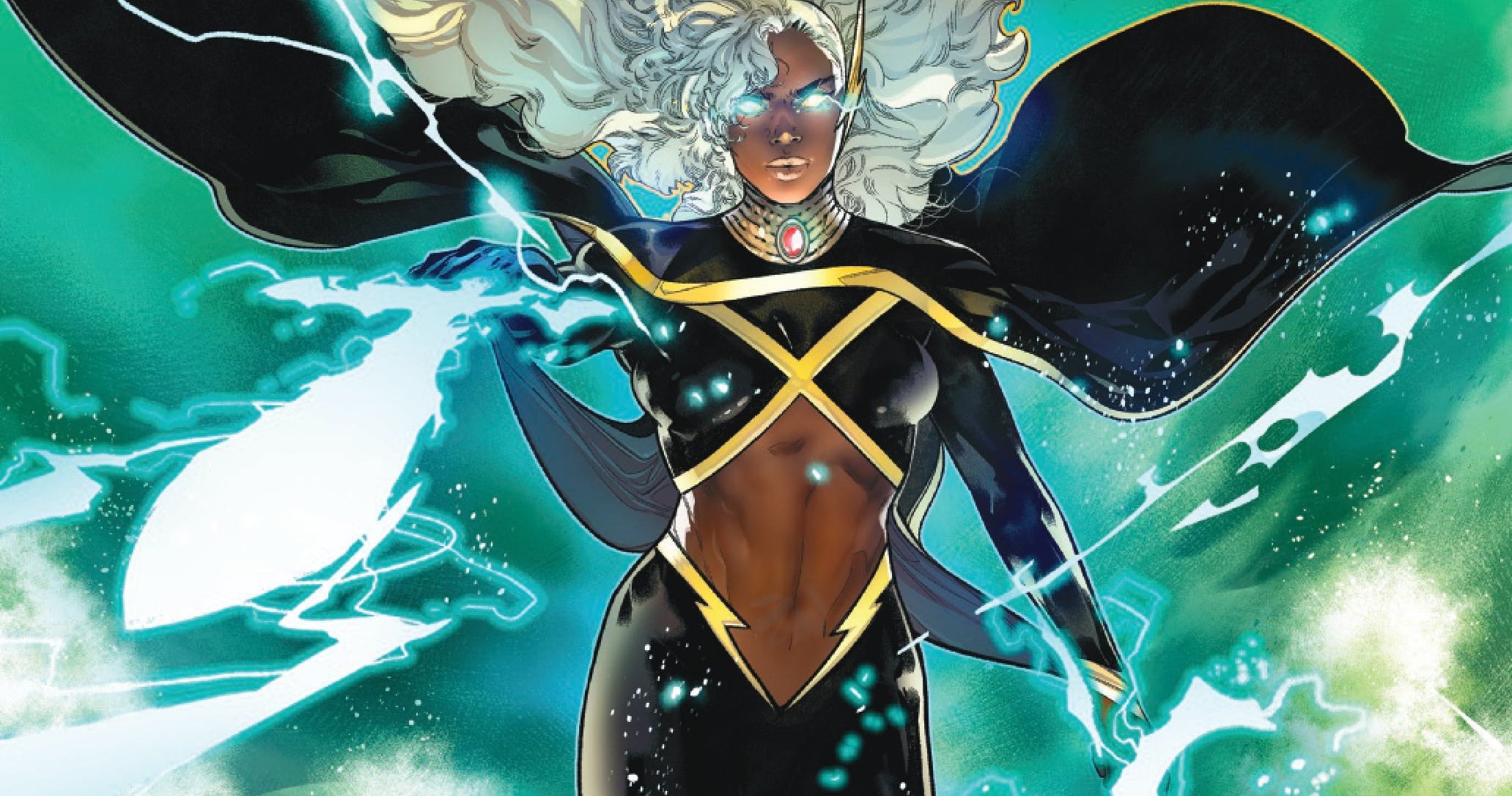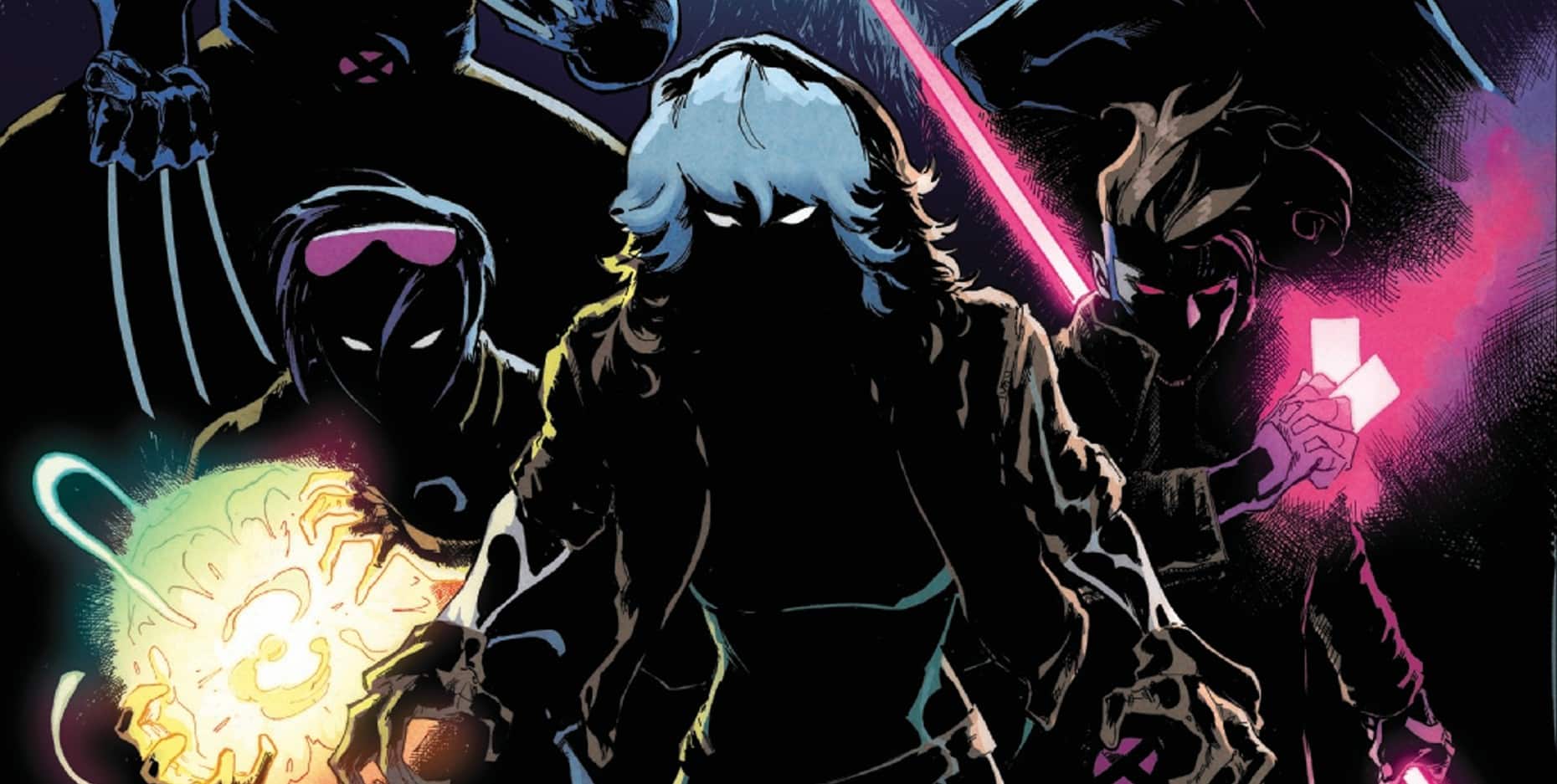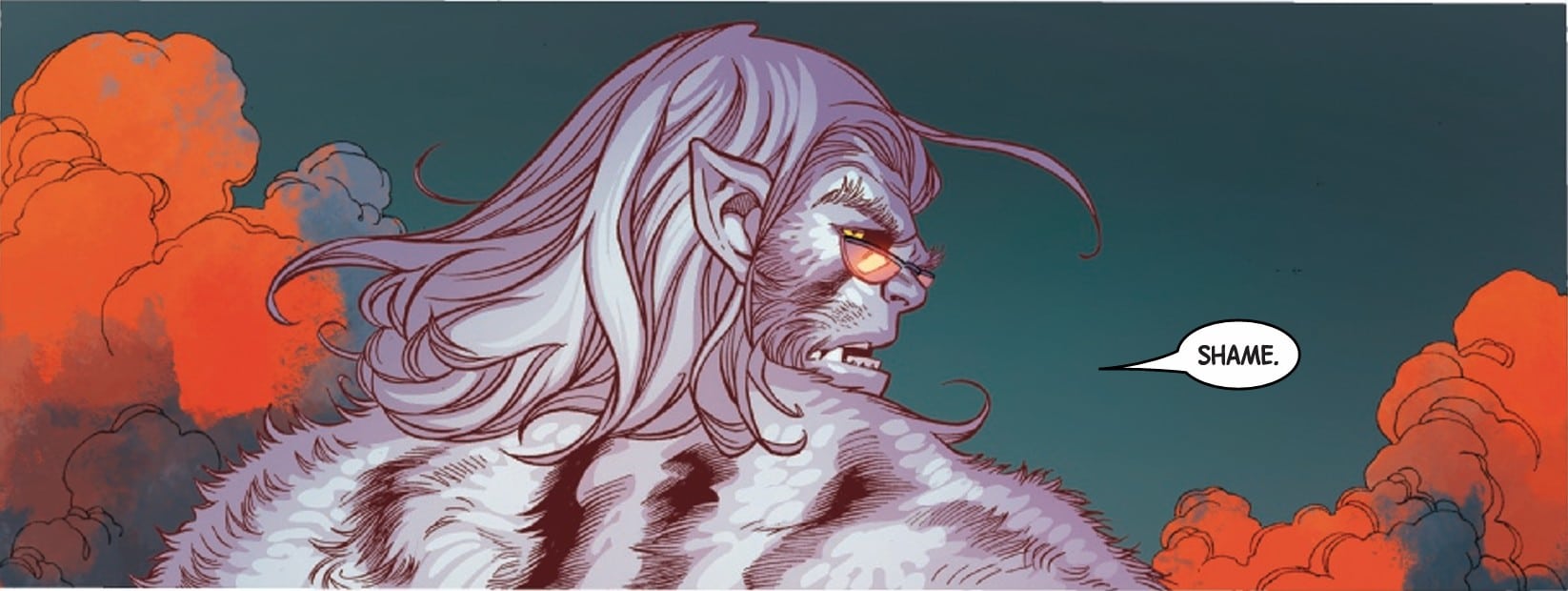Ororo Munroe has lived many lives. She’s been a thief, a goddess, an X-Man, a queen and an Avenger. She is the most prominent, most respected and most powerful mutant on the world stage; and in that role, she intends to be a force for positive change. First up: A major meltdown at a nuclear facility in Oklahoma City draws Storm from her sanctuary in Atlanta, and into a moral conflict that will test her iron resolve. Storm #1 is written by Murewa Ayodele, drawn by Lucas Werneck, colored by Alex Guimaraes and Fer Sifuentes–Sujo and lettered by Travis Lanham.
Storm #1, Murewa Ayodele and Lucas Werneck’s frustratingly fine (just fine!) foray into the life of the most notable and powerful Black woman in all of mutantdom, Marvel and arguably the multiversal menagerie of make-believe, lays bare its purpose with a trolley problem-esque question: Do you tell a hard truth at the cost of peace, or parrot a lie as a gift to the disenfranchised and disregarded?
What would you do?
What would Storm do?
The answer to that question, of course, is the right thing — it’s what Storm does. But what exactly is “right?” And cui bono: for whom — the people or her conscience — would that “right” thing benefit? This begs for an examination and appraisal of what it means to be good, right and righteous — in other words, to be a savior.
This would make for an interesting, intriguing stance for a comic.
It’s not clear that this will be that comic, even if it wants to be.

Storm is, for better and worse, a safe, by-the-numbers introduction to our protagonist’s new normal modus operandi. Ororo now resides in Atlanta, in a floating apparatus called the “Storm Sanctuary.” No longer beholden to the needs of the Red Planet, or to her former X-mates in Alaska and New Orleans (or, seemingly, to her new ones based in a floating space station), we see her alone, pacing through her closet, trying to find the words and looks with which to address the world. She’s apparently contemplating running for Congress, thus her pending speech will have ramifications for both how people perceive her (and her people), and for her prospects for electability.
No pressure at all.
It’s worth pausing here to ask why: why Atlanta, a city we’ve never seen her associated with; why an Asteroid M/Utopia-ish base of operations, separate from the world when she’s always sought to be an integral, integrated part of it; why Congress, after being a queen and regent highly suspicious of power and bureaucracy? None of this particularly makes sense coming from older works; even if you’re not familiar with or a fan of Krakoa, putting her in Atlanta as a politician seems … odd? (A conspiracy theory: This was a pitch for noted writer, nerd, politician and Atlanta resident Stacey Abrams.)
Regardless, it’s the new normal, and, as is normal for all mutants, conflict is around the corner.
She’s recovering from saving Oklahoma City from a nuclear meltdown (with her BFF Frenzy), finding an emerging mutant at the center of a quickly deteriorating situation. She, of all people, understands the unpredictable wrath with which powers manifest, so, at substantial risk to herself, she embraces the scared child, calming him, saving the city, while taking substantial damage though shrapnel and radiation poisoning.
(Put a pin in this.)

Also at the center of this meltdown was a (dead?) kaiju, mined for power. This could serve as a convenient scapegoat; all the witnesses were dead, besides the child whose power manifested at the wrong time, in the wrong place. Mutants are, as always, hated and feared, but her goodwill stems that tide, giving baseline humans a hero and mutants worldwide hope. Would she sacrifice that goodwill and hope to tell an inconvenient truth? Would she once again put her people in the crosshairs so she could sleep better at night?
What would Storm do?
She, predictably, tells the truth. Mutants are, predictably, feared and hated.
The status quo is, once again, predictably held up. And while the issue ends with dual cliffhangers — Storm’s health failing and Eternity (yes, Eternity)’s interest in her rising, presumably as some sort of consort — none of this feels fresh, or new, or challenging.
It all feels just fine enough, which is a salient criticism of not just this issue, but of the From the Ashes era.
Nothing challenges or prods convention; nothing dares to be different or diverges from what we’d expect emotionally, even if the venues and circumstances (Atlanta, Sanctuary, Eternity) are most certainly novel. Depending on your point of view, this is either an invigorating breath of fresh air, or a confounding retread of safe material.
Ironic, then, that “point of view” is the most blatant shortcoming of this experience.

A significant amount of the story is told through exposition — some third person, third party, detached entity noting who does and feels what. To be fair, we see Storm speak: We hear her question, we see her try to make peace. We see what anyone else observing the situation would see.
But we don’t hear from her internally; we don’t understand her hopes, dreams, desires, fears or contraindications — not from her mouth. Here, she feels like a passive participant in her own story, a goddess who can summon hurricanes trapped in the jetstream of everyone else’s problems. She does exactly what we expect she would do — be self righteous, offer herself as sacrifice — with no questioning and no pushback.
This would be frustrating enough, no matter the character.
That a Black woman — THE Black goddess — does not narrate her own story makes this lack of agency all the more infuriating. (For an example of great Storm self-narration, see The Resurrection of Magneto #1.)
Black women in particular too often see their voices stripped from them while they’re expected to sacrifice for the greater good. That Storm would follow the same archetype — sacrificing her body to save someone else, without the agency to declare if she had any hesitation — is disconcerting.
(Also disconcerting and unsurprising: the abdication of anger toward Orchis. You would not expect Magneto to save someone with a swastika on their person, yet Frenzy is expected to save someone who supported her extermination, with nary a line of dissent or reflection. Even in comics, everyone isn’t allowed to be angry.)
Of course, this is the first issue; there is much more to see and hear, and many more opportunities for Storm to assert her voice, the real source of power. Ayodele clearly, genuinely likes this character; Werneck very clearly loves drawing her. Storm looks gorgeous throughout the issue, illustrated with the kind of care all characters deserve. Her hair particularly — THANKFULLY — looks like a bushy cloud, full of force, flying ferociously during flight. There is real talent here (Ayodele’s work on I Am Iron Man and Akogun: Brutalizer of the Gods shows his realized potential), giving reason to believe the story will grow more intriguing as time goes on. To its credit, the barrier for new readers is relatively low, so those unfamiliar with her past can easily feel caught up within the confines of this issue. As convoluted as comics can be, that is no small task, and it’s completed with remarkable aplomb.
And yet.
Comics are art, and rarely do we walk into an art museum and say things are good or bad. We instead ask if we find the art interesting or relatable. We ask what the artist’s intention was, and ask if the work fulfills that stated vision. We ask if the effort we extended to reach the work — the miles traveled, the admission paid, the lines queued for the exhibit — were worth the effort. Storm is absolutely worth the wait and worth the price of admission; it’s clearly created with intention and love, and that love pours out from every pencil stroke and stencil. And yet, though care and vision are palpable and visible, the story itself — as it is in this issue, not as it could be in future issues or how it will be read, taken as a trade — is merely sufficient. It is fine. It is good, but not great.
Which brings us back to the trolley.
In a world increasingly hostile to Black voices and Black women, in a medium that needs Black voices and Black women to be massive successes to get half the chance others get, a review that is anything less than glowing might feel like apostasy to those who advocate for Black voices and Black women.
Do you write with honesty, hoping the critique is received with care with the hope that future issues will build upon a solid foundation?
Or do you write a glowing review for the greater good of solidarity in an antagonistic society?
What would Storm do?
What would you do?
Buy Storm #1 here. (Disclaimer: As an Amazon Associate, ComicsXF may earn from qualifying purchases.)
A proud New Orleanian living in the District of Columbia, Jude Jones is a professional thinker, amateur photographer, burgeoning runner and lover of Black culture, love and life. Magneto and Cyclops (and Killmonger) were right. Learn more about Jude at SaintJudeJones.com.






